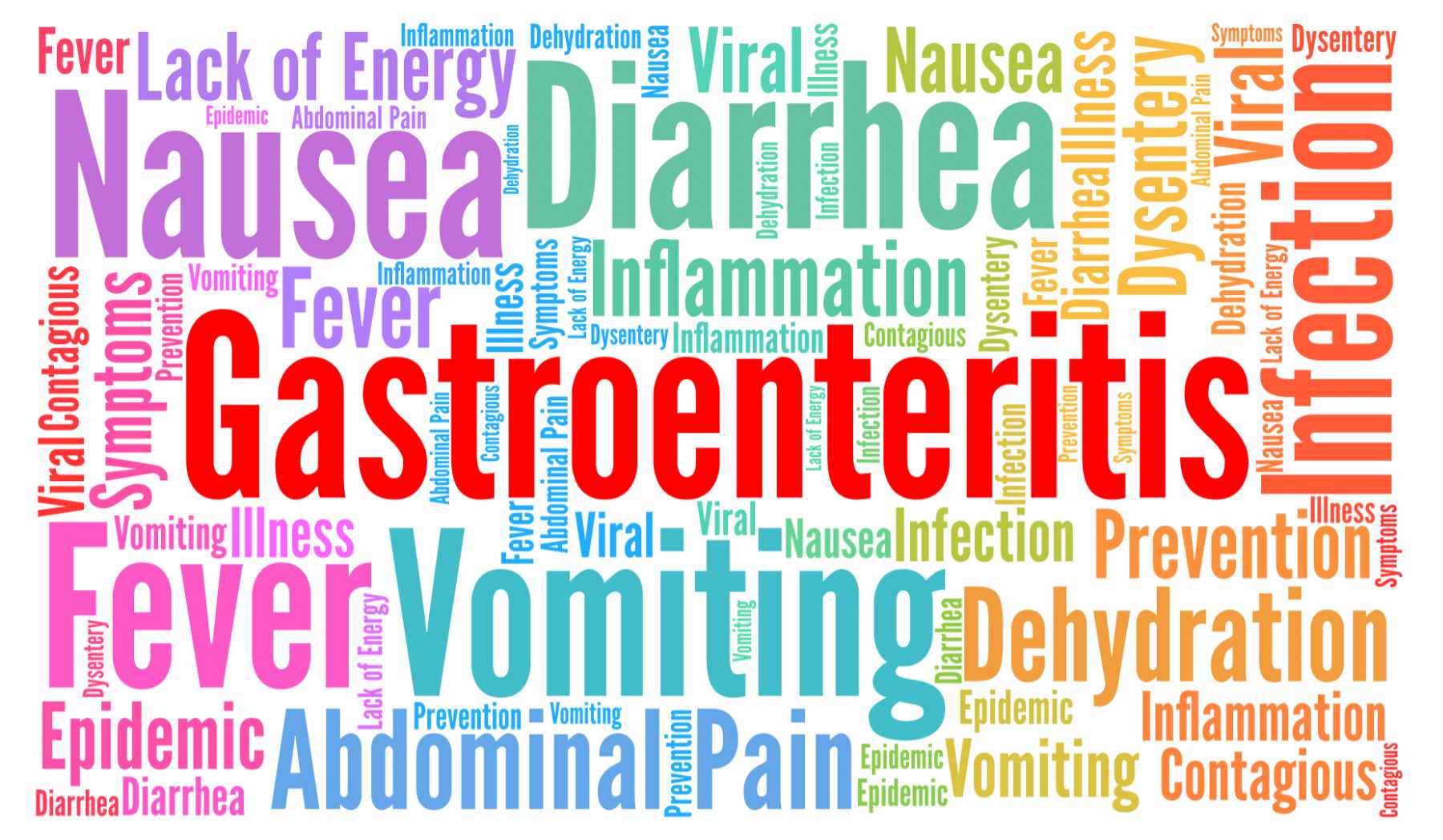Viral Gastroenteritis
ChatRx uses advanced AI to accurately diagnose the symptoms of Viral gastroenteritis and prescribe medications as needed.
Overview
Viral Gastroenteritis: A Common and Treatable Digestive Disorder
Viral gastroenteritis is a widespread digestive condition characterized by inflammation of the gastrointestinal tract, often resulting in symptoms such as diarrhea, vomiting, and abdominal pain. This condition is commonly caused by viral infections, including norovirus or rotavirus, and can lead to significant discomfort and dehydration.
If you have any signs or symptoms of Viral gastroenteritis, we encourage you to use our AI system to assess your symptoms.
AI-Powered Symptom Assessment Coming in Spring 2025!

What is Viral Gastroenteritis?
- A common digestive disorder characterized by inflammation of the gastrointestinal tract
- Often caused by viral infections, such as norovirus or rotavirus
- Resulting in symptoms like diarrhea, vomiting, and abdominal pain
Causes of Viral Gastroenteritis
- Viral infections, particularly from norovirus or rotavirus
- Consumption of contaminated food or water
- Close contact with infected individuals
Preventing Viral Gastroenteritis
- Practice good hygiene, including frequent handwashing
- Avoid contact with individuals who have active gastroenteritis symptoms
- Properly store, cook, and handle food to prevent the spread of foodborne illnesses
Do You Feel Like You Have Viral Gastroenteritis?
AI-Powered Viral Gastroenteritis Treatment Coming This Spring!
Start Your Viral Gastroenteritis Assessment Now
Symptoms of Viral Gastroenteritis
- Diarrhea, which can be watery or bloody
- Vomiting and nausea
- Abdominal cramps and pain
- Fever, chills, and body aches
- Loss of appetite
Treating Viral Gastroenteritis
- Maintain proper hydration by drinking plenty of fluids, such as water or electrolyte-containing drinks
- Use over-the-counter medications, like anti-nausea or anti-diarrheal drugs, to alleviate symptoms
- Seek medical attention if symptoms persist or worsen, as prescription medications may be necessary
Self-Care for Viral Gastroenteritis
- Rest and avoid solid foods until the symptoms subside
- Consume a bland, easy-to-digest diet, such as the BRAT (Bananas, Rice, Applesauce, Toast) diet
- Practice good hygiene and avoid spreading the infection to others
Feeling Unwell?
AI-Powered Symptom Assessment Coming in Spring 2025!
Medications for Viral Gastroenteritis
- Over-the-counter anti-nausea medications, like ginger or dramamine, to alleviate vomiting
- Over-the-counter anti-diarrheal medications, such as loperamide, to control diarrhea
- Prescription medications, as directed by a healthcare provider, may be necessary in severe cases
Risk Factors for Viral Gastroenteritis
- Exposure to contaminated food or water
- Poor hygiene, such as not washing hands properly
- Close contact with individuals who have active gastroenteritis symptoms
- Weakened immune system due to underlying medical conditions
Summary
Viral gastroenteritis is a common and often treatable digestive disorder that can be effectively managed through proper hydration, supportive care, and targeted medical treatment when necessary. By understanding the causes, symptoms, and appropriate care for this condition, individuals can take steps to prevent the spread of viral gastroenteritis and minimize the discomfort associated with this widespread digestive issue.
Frequently Asked Questions
While symptoms can be similar, viral gastroenteritis typically develops gradually over 24-48 hours, whereas food poisoning often starts suddenly within hours of eating contaminated food. Viral symptoms also tend to last longer, usually 2-3 days.
Unsure about your symptoms? Get a quick assessment through ChatRx’s AI medical platform to understand your condition better.
Watch for decreased urination, dark urine, extreme thirst, dry mouth and throat, dizziness when standing, or decreased skin elasticity. In children, also look for fewer wet diapers, lack of tears when crying, or unusual sleepiness.
Begin with small sips of clear liquids, then gradually introduce bland foods as you can tolerate them. Start with items like broth, gelatin, or ice pops, then progress to toast, rice, or bananas. Avoid dairy, spicy foods, and fatty foods until fully recovered.
You’re typically most contagious while experiencing active symptoms and for the first few days after recovery. Some viruses can remain in your system for up to two weeks, even after you feel better. Maintain careful hand hygiene during this time.
Experiencing stomach virus symptoms? Let ChatRx’s AI-powered assessment help determine if you need medical attention.
While anti-diarrheal medications might provide relief, they can sometimes prolong the infection by preventing your body from eliminating the virus. It’s often better to focus on staying hydrated and letting the illness run its course unless symptoms are severe.
Since viral gastroenteritis is caused by viruses, not bacteria, antibiotics won’t help and might make symptoms worse by disrupting your gut bacteria. Focus instead on rest and hydration to support your body’s natural recovery.
Clean shared bathrooms with disinfectant after each use, avoid preparing food for others, use separate towels and utensils, and wash your hands frequently. Consider using different bathrooms if possible until symptoms resolve.
Symptom severity can vary based on factors like your immune system strength, overall health, age, and the specific virus involved. Some people might also have partial immunity from previous exposures to similar viruses.